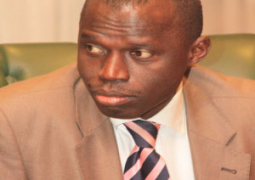“The
Gambia Music Union is disappointed that copyright is increasingly being
referred to as an impediment to business and growth and we believe that the
focus must be brought back to how performers’ rights protect musicians and
artists, who would be unable to maintain a career without them,” according to
Kalilu Banja, program director of Gambia Music Union.
He
stressed that the Music Union therefore lobbies Government to protect these
rights on the basis that only a small number of Gambian artists have regular
salaries.
The
Copyright Act 2004 mandates the National Centre for Arts and Culture (NCAC) to
administer the aspect of copyright in The Gambia. The Act gives the Copyright
Office under the NCAC the responsibility to ensure and administer (a) the
registration of intellectual property works such as films, books, and music
products; (b) to fight piracy and (c) to sensitize the public on copyright
issues.
The
Act also provides for the creation of an autonomous body or corporate
institution called the Gambia Collecting Society, which will collect royalties
for artists whose works are used by radio stations, clubs, taxis, hotels,
forums, etc.
This
body should be set up and run by the artists themselves and the NCAC has no
role in it except that it occupies a seat on the 9-member board. Yet, the NCAC
is actively supporting artists, such as writers, drama and theatre groups, to
come together in associations so that the Gambia Collecting Society can start
operations.
Banja
said it’s important to note that, Musicians Union of The Gambia for the past 10
years and so has been advocating bringing artists together for them to stand up
as one and defend their interests and rights.
“Through
the support of NCAC, MUSIGAM serves its role to mobilize and promote unity in
diversity amongst musicians but it proves very difficult for us because many
people consider it doesn’t worth it to join the Union,” he said.
According
to him, they encounter adversaries from promoters, producers, Djs and event
organizers who knew very well the role of the Union more than our artists so to
speak, were never supportive (conflict of interest).
“Musicians
rely on live revenue to survive. Income from CD sales is decreasing and illegal
downloading continues, making a sustainable career difficult without fair pay
for live performances,” he said.
He
added that most are Small and Medium Enterprises (SMEs), whether they are sole
traders or members of a band, and they therefore rely on their copyright and
performers’ rights to make a significant part of their income.
He
explained that in essence, their copyright and related rights are an important
part of their ‘product’ and of the diverse income streams that make up their
income, and, like any SME, they have to protect their product.
“Aware
of the fact is a lucrative business worldwide, Gambia Government and private
sector should start to invest in the creative economy which includes the music
industry,” he said.
Artists’
employment status and relationships needs to consider by the labor laws as
catered in the international conventions, i.e. the ILO standards. Most people
don’t seems to understand what the hell an artist has to go through, with
regards to the various processes to get their music right ranging from
composing, arranging, songwriting, recording, rehearsing with bands, management
and promotion efforts.
These
processes can makes the novice brain hurts as they requires investing time,
energy, resources and manpower to have it professionally achieved.
Been
the case, the rate of pay for artists performances is quite different from
other nature of works to pay as defined by the labour laws. Artistic and media
works aren’t subjected to monthly payment (as in monthly salary expect for
those employed by an entity).
The
performances of artistes are mostly contractual and clearly fluctuate variedly
with time and circumstances. Again, artistic payments are calculated factoring
social protection principles, intellectual property rights, performance rights
and related rights as well.
When
these rights are sufficiently addressed, artistic works and payments can
empower artists considering social security benefits, pension schemes, health
insurance and safety at work measures.
Many
people and the artists lack these skills but, departments responsible for the
development of the arts and culture sector of The Gambia, must fulfill their
roles to support, empower, develop and satisfy the needs of the creative
sector.
Precisely,
artistes live rates are based on an hourly rate which a self-employed musician
needs to charge in order to earn an income, relative to their training,
experience and expertise. Individual negotiations can be made based on these
minimum rates. If you’re self-employed, you do not have a contract of
employment with an employer.
You’re
more likely to be contracted to provide services over a certain period of time
for a fee and be in business in your own right. You’ll also pay your own tax
and National Insurance Contributions. You don’t have employment rights as such
if you’re self-employed as you are your own boss and can therefore decide how
much to charge for your work and how much holiday to give yourself.
You
do have some legal protection. You must not be discriminated against and you’re
entitled to a safe and healthy working environment on your client’s
premises.


